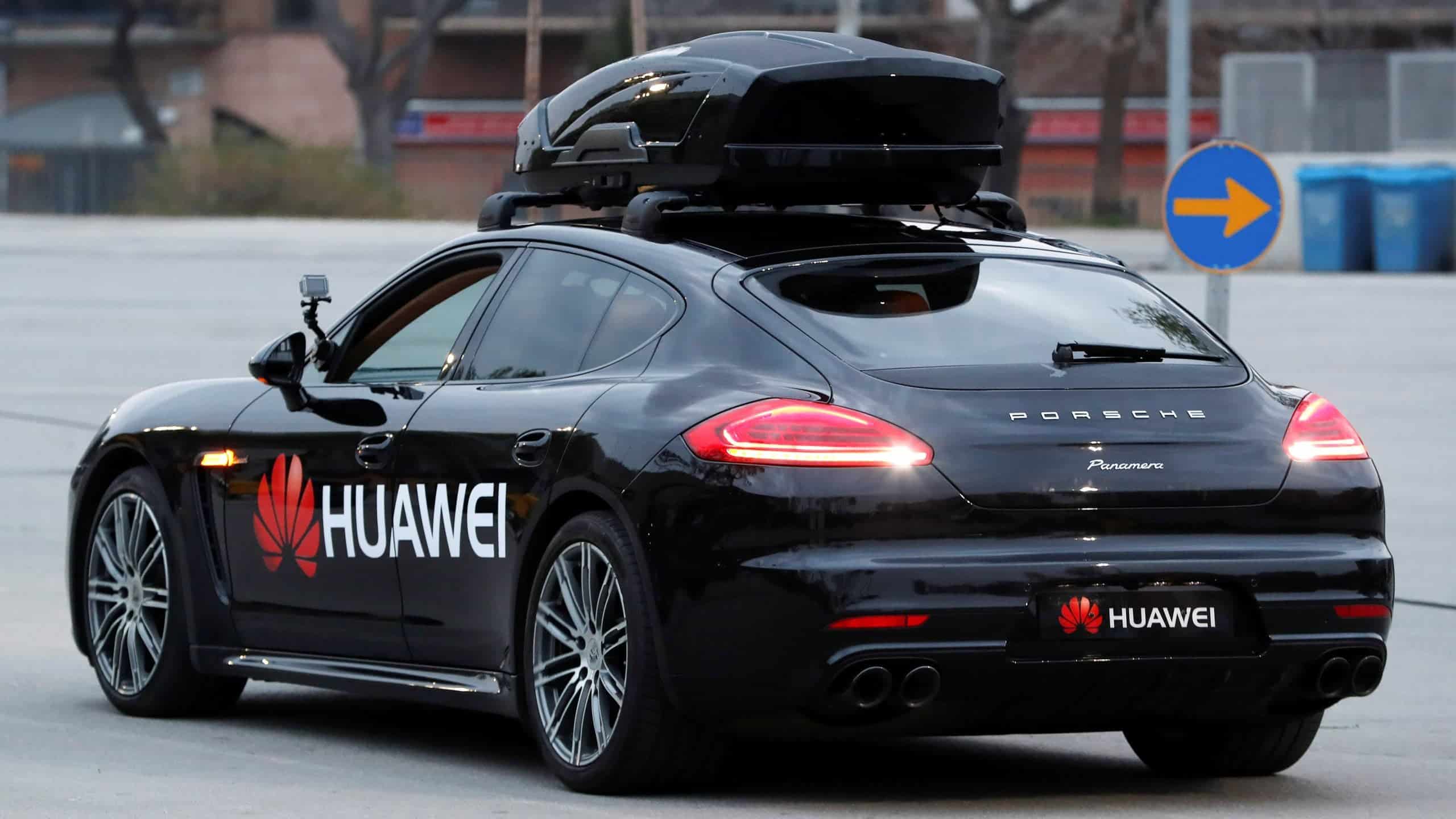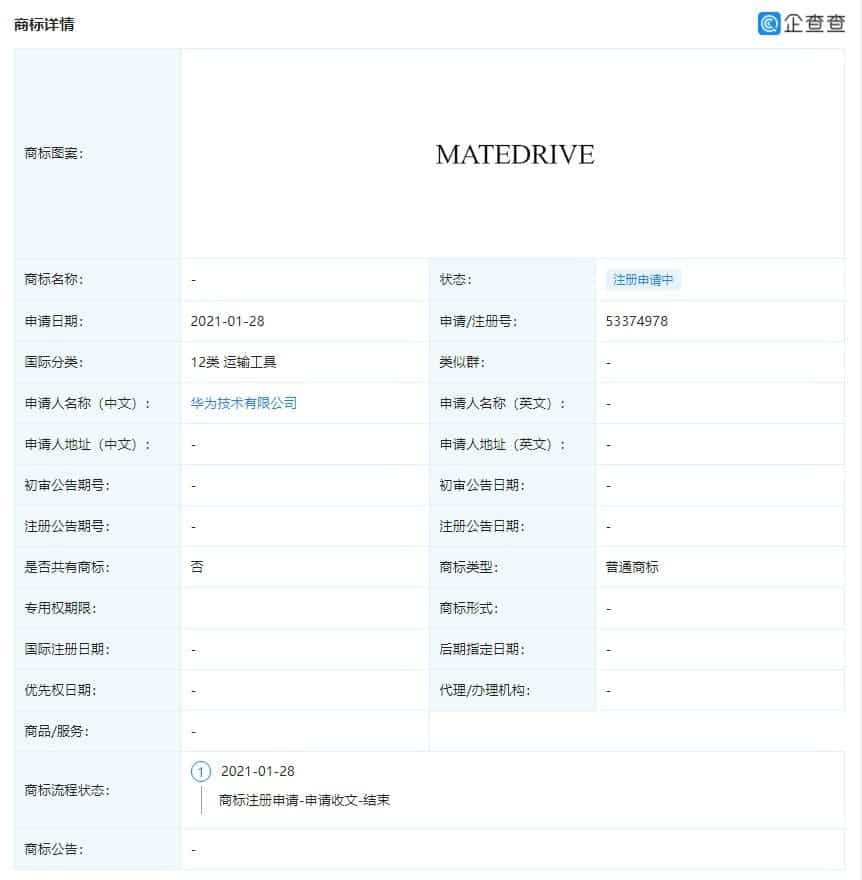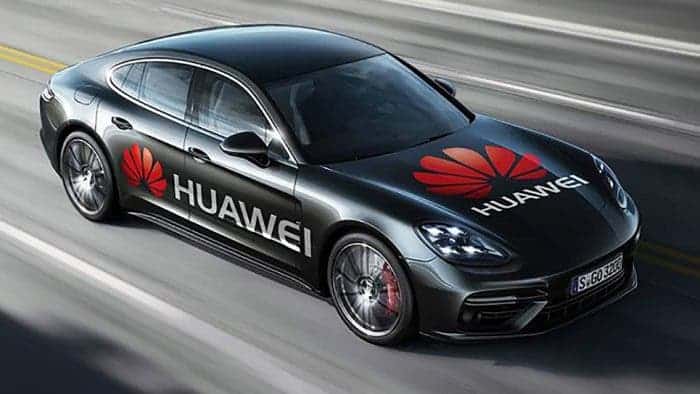Recent reports show that Huawei Technologies Co., Ltd. applied for the registration of MATEDRIVE & MATEAUTO trademarks on January 28. The registration shows that these are “scientific instruments and transportation tools”. In addition, parts of the registration description read “driving, transmission (or drive) device”. This means that these trademarks are related to cars. The application number is 53374978, and the current trademark status is pending registration.

Over the past two years, there have been several reports linking Huawei to car driving. On the 19th of last month, Huawei published a patent related to autonomous driving, which specifically relates to a method for reasoning on roads that can be driven;

In August last year, Huawei successfully held the Huawei Autonomous Driving Network Technology Summit in Suzhou and discussed the development prospects and standards of the autonomous driving network industry with professors from Fudan University, Zhejiang University, Xi’an Jiaotong University, Northeastern University, and Soochow University. The discussion also covers the process of defining cutting-edge technologies. Furthermore, the company announced the establishment of a Huawei Digital Communication Autonomous Driving Network Joint Laboratory.

However, this is the first time that Huawei has links to driving trademark. We will wait and see whether this means that cars from the Chinese manufacturer are on the way.
Huawei In-Car Smart Screen For All Models
In December last year, Huawei held a new product launch conference for smart screen products. At this conference, the company also released a new smart gadget for cars. This is the first in-car smart screen that comes with Huawei’s “distributed technology” in China. It is also the first after-mount in-car product that supports Huawei HiCar.
Based on the distributed capabilities, Huawei smartphones supporting HUAWEI HiCar applications can be seamlessly transferred to the in-car smart screen.
Huawei In-Car Smart Screen Features
Huawei’s in-car smart screen uses an 8.9-inch IPS screen. It has a 6mm narrow frame, a resolution of 1920×720, an 8:3 widescreen, and a UI design. This is more in line with the onboard environment. It not only solves the navigation pain points during driving but also makes the operation is simpler and safer.
Its brightness is as high as 700 nits. It also comes with an automatic light-sensing system to adjust the brightness of the screen. When driving in a variety of weather conditions, you can clearly view the guidance information displayed on the screen.
With 16.7 million colors and a 72% NTSC color gamut IPS screen, the picture is rich in color. Plus, the screen surface is etched to prevent glare and reduce light and shadow.
The in-car smart screen adopts a four-leaf clover base design. It can be adapted to more center consoles to meet the needs of users of different models. The connection between the screen and the base adopts the gimbal head structure used by professional SLR cameras. It supports 360° infinite rotation and can adjust the angle at will.
Huawei’s in-car smart screen sports the country’s first cockpit lift camera. In addition to supporting normal calls, it can also realize Huawei smartphone video calls and Huawei cloud conference functions through the internal lift camera.
Its front camera can record 2160x1440P quality driving video. The camera has an f/1.8 large aperture and a 135-degree wide-angle lens, covering a three-lane driving record. The external camera supports manual adjustment with a maximum deflection angle up to 10 degrees.





